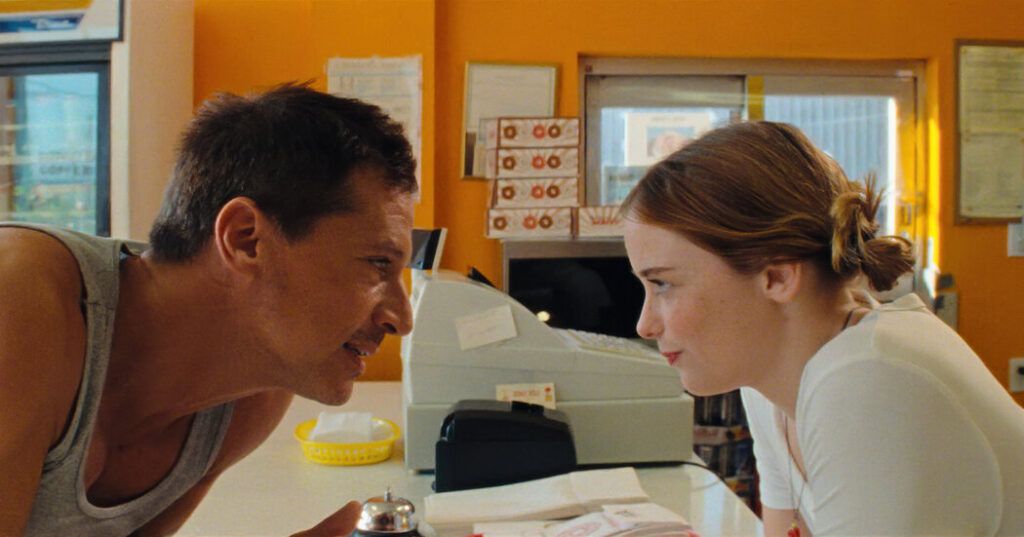Anora: Visit Your Local Poling Place

The opening shot of Sean Baker’s Anora finds the camera dollying along a row of champagne booths at a strip club, clinically observing a scene of stylish debauchery. The music is loud, the light is low, and the exotic dancers are gyrating with plastered smiles, pantomiming their pleasure while internally checking their watch. Given that this display is preceded by an austere title card informing audiences that the film has received one of the most prestigious prizes in cinema (the Palme d’Or at Cannes), you might think that the ensuing picture will be a squalid story of misery and disenchantment—an exposé revealing the predatory nature of the strip-club industry and the meager circumstances of the women whom it chews up and spits out. Surely this widely acclaimed and undoubtedly serious movie can’t be… fun?
But Baker, continuing his hot streak in the wake of The Florida Project and Red Rocket, demolishes his viewers’ assumptions as cannily as he develops his characters. It is true that Anora is a thoughtful and incisive work, exploring its drably decadent milieu with persuasive rigor. It is also, by and large, a blast—a ribald comedy that hums with playfulness and dynamism. It turns you on and pulls you in. Read More


